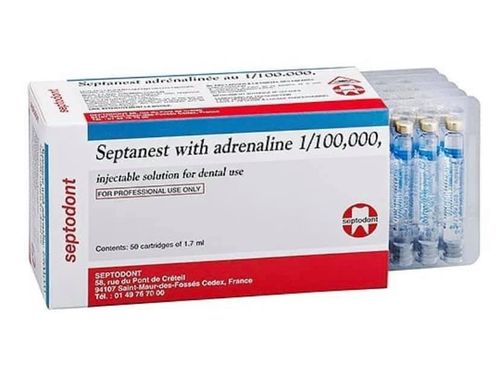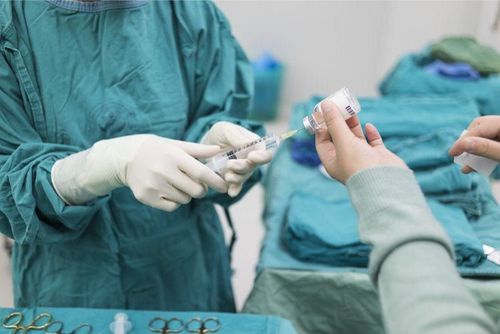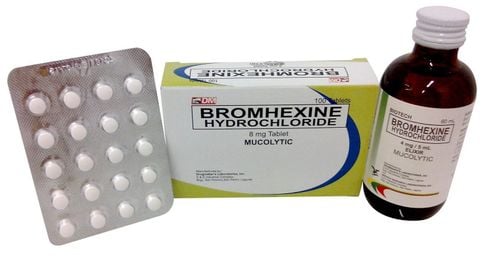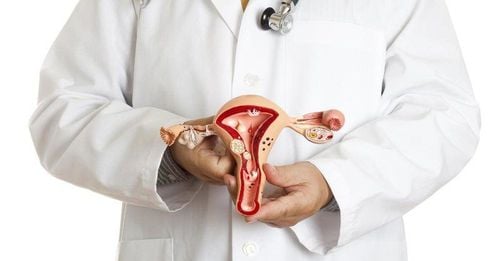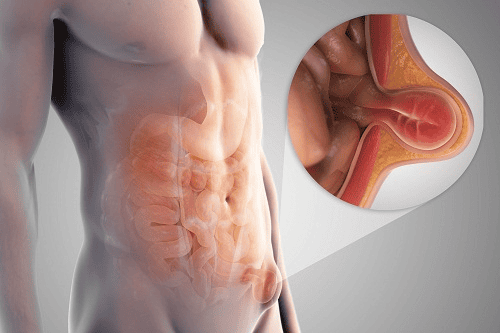This is an automatically translated article.
The article was professionally consulted by Specialist Doctor II Phan Thanh Nguyen - Department of General Surgery - Vinmec Central Park International General Hospital.When it comes to surgery, we often think of surgical methods, results, length of hospital stay, cost of surgery. Having to pack up for a day or two in the hospital for minor surgeries is something that puts some patients at a disadvantage. Because of that, in developed countries, intraoperative surgery is increasingly popular.
1. Introduction of day surgery
Day surgery is a procedure in which certain types of surgery are performed in patients who are scheduled to return home the same day. These forms of surgery account for about two-thirds of all surgeries in the UK and US. Surgery can be done at a facility affiliated with the hospital, a separate surgery center, or in a doctor's office.
Cases of surgery on the same day were identified as the most influential change to improve the quality of postoperative recovery and patient satisfaction.

Hình thức phẫu thuật bệnh nhân được về trong ngày
2. Questions about day surgery
What are the advantages of day surgery? Short inpatient stay, patients have convenience and comfort when recovering at home Lower infection rate, especially nosocomial infections Reduce waiting time from a series of planned elective surgeries Cheaper than surgery that requires an overnight stay What types of surgery can be done for this type of surgery? For surgeries that meet the criteria, patients will be able to perform surgery on the same day. There are many types of surgery such as laparoscopic cholecystectomy, inguinal or abdominal wall restoration for hernia, thyroidectomy, laparoscopic appendectomy, hemorrhoidectomy, laparoscopic surgery for ectopic pregnancy , orthopedic surgery such as knee arthroscopy; Maxillofacial surgery such as mandibular fracture treatment... Nowadays, even laparoscopic gastric bypass surgery to treat obesity is also performed in this form in the US.Much of the success of surgery in cases is down to patient choice. In Europe and America, most hospitals have standards for compliance, which often include absolute and relative contraindications based on the associated disease and social factors.
>>>> Customers can refer to more information: Same-day surgery – what disease is suitable?
What kind of anesthesia will I undergo? With surgery on the same day, depending on the type of surgery, patients can undergo:
General anesthesia for major surgery Regional anesthesia for lower abdomen, anorectal, extremity... Sedation for surgery Flexible endoscopic procedures Local anesthesia
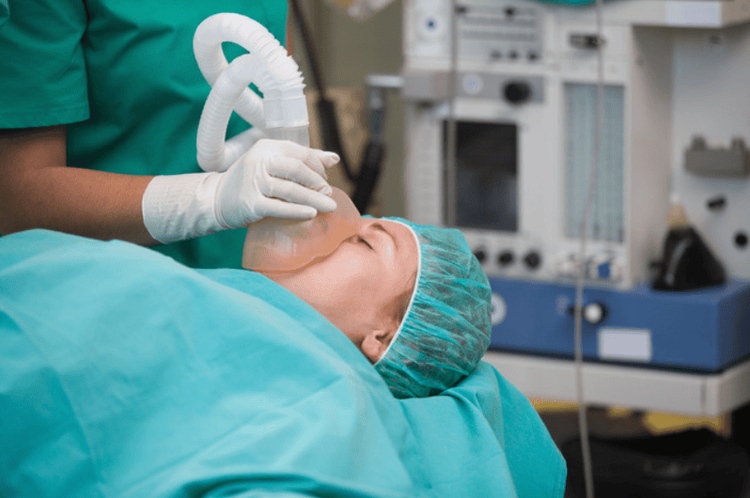
Người bệnh được gây mê toàn thân
What do I need to prepare for the same day surgery? Just like surgery that requires hospitalization, there are guidelines that must be followed in preparation for a patient's day out surgery. Your preparation will depend in part on the type of anesthesia you will undergo, which may be asked not to eat or drink anything for several hours before surgery.
Other preparations that will help ensure a safe and comfortable process Travel with a family member. If you undergo anesthesia that makes you drowsy you will not be able to drive or get home on your own. Having someone with you will also help you relax before the procedure and will help you remember the instructions for your recovery. Wear comfortable clothes. You may experience pain from the surgery or the dressing, so wear loose, comfortable clothing. Plan for recovery time. If you had minor surgery with a local anesthetic, you can go home right after the procedure. If you have regional anesthesia, sedation, or general anesthesia, the anesthesiologist may monitor you for several hours to make sure your heart and breathing are normal and that you are not experiencing any side effects. When you get home, you should have someone stay with you for at least the first 24 hours. You will probably have some soreness and possibly drowsiness. Anesthesia can also affect your reflexes and judgment for a while, so plan to stay home and rest.
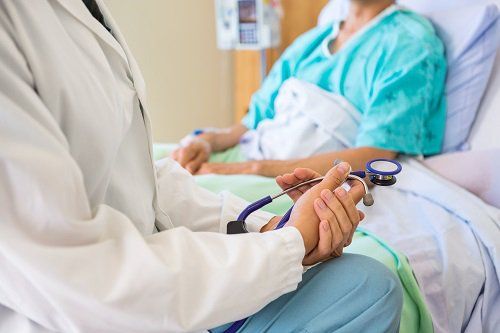
Chăm sóc bệnh nhân sau hậu phẫu
Be prepared with side effects. Ask your anesthesiologist or surgeon about post-operative pain and how best to treat it. An anesthesiologist is a doctor who specializes in pain management and can advise you on prescription and over-the-counter medications, as well as ways to manage pain without medication. An anesthesiologist can also help if you have nausea or vomiting, which some patients experience hours or days after surgery and anesthesia.
What do I need to know about the surgery site and the surgeon? While same-day surgeries may not be for emergencies and are often less complicated than surgeries that require a hospital stay, it's still important to do the work you do from home. Make sure you get the best care. You need to ask the question:
What are the qualifications of the surgeon and the team?
Ask about the qualifications and experience of the surgeon who will perform your surgery to ensure that he or she is trained and performs the type of surgery for you. Make sure the nurses and other clinical staff supporting the surgeon are also experienced with this procedure and have appropriate medical education and training. Ask about possible complications, possible complications, recovery time... Any surgery or procedure has complications and complications, so with an experienced doctor and The synchronized team will bring you the best results.

Trình độ của bác sĩ giúp bệnh nhân an tâm hơn trước khi lên bàn mổ
Who will perform and monitor anesthesia? Make sure an anesthesiologist is leading your anesthesia care, especially if you undergo general anesthesia or sedation. Anesthesiologists are medical professionals most skilled in anesthesia care, pain management and critical care medicine, so they can ensure you get the most effective pain control after your surgery.
Is this a licensed and well-equipped surgical center to perform surgery? Although rare, emergencies can occur during surgery. Unlike a hospital, an in-office surgery site may not have an emergency facility nearby, so it's important to ask the surgical center for emergency medicine, equipment, and procedures to care for. your safety if there is an emergency. Outpatient surgery centers should be licensed and accredited.
At Vinmec Central Park Hospital, together with the enhanced recovery after surgery (ERAS) program, we have perfectly designed two relatively large surgeries that can be returned on the same day: Internal cholecystectomy. screening for gallbladder disease; Laparoscopic repair of the inguinal wall for inguinal hernia. This is the first form in Vietnam that we have tried to build according to the model of advanced countries. We have a team of experienced surgeons and anesthesiologists, a dedicated and attentive care team with the cleanest environment in hospitals in Vietnam that will bring the best results in terms of treatment and care. Satisfied with the service experience for patients. The longer the surgery is indicated, the less beneficial it is because complications from the disease can occur and when surgery is required in those situations, there is definitely more risk, longer hospital stay.
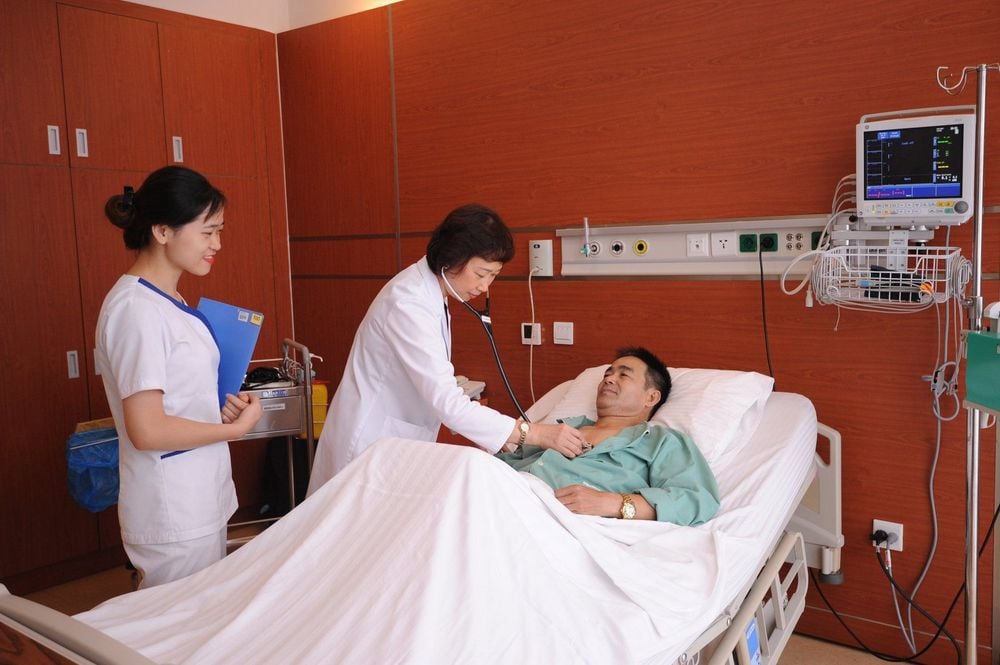
Chương trình phục hồi sớm sau mổ (ERAS) tại Vinmec
During the ongoing Covid-19 epidemic, a long hospital stay is definitely unfavorable and undesirable, so same-day surgery is an extremely convenient form as well. to minimize the risk of infection.
Vinmec International General Hospital is one of the hospitals that not only ensures professional quality with a team of leading medical doctors, modern equipment and technology, but also stands out for its examination and consultation services. comprehensive and professional medical consultation and treatment; civilized, polite, safe and sterile medical examination and treatment space.




